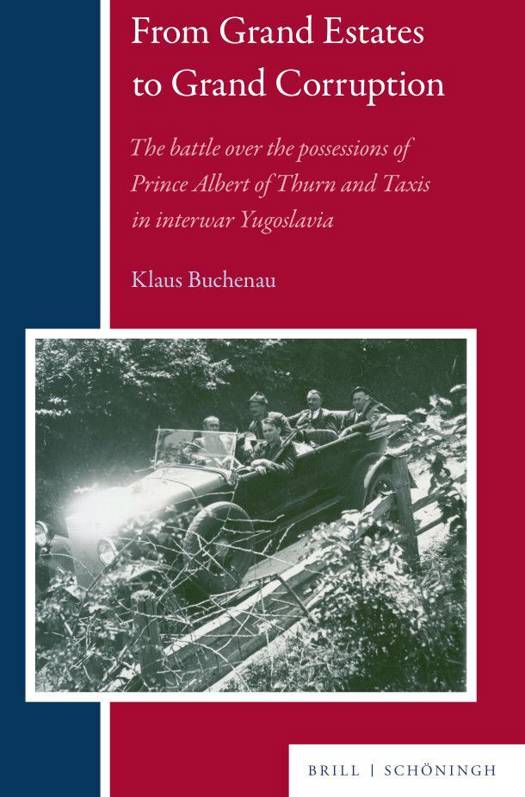
- Afhalen na 1 uur in een winkel met voorraad
- Gratis thuislevering in België vanaf € 30
- Ruim aanbod met 7 miljoen producten
- Afhalen na 1 uur in een winkel met voorraad
- Gratis thuislevering in België vanaf € 30
- Ruim aanbod met 7 miljoen producten
Zoeken
From Grand Estates to Grand Corruption
The Battle Over the Possessions of Prince Albert of Thurn and Taxis in Interwar Yugoslavia
Klaus Buchenau
€ 228,95
+ 457 punten
Omschrijving
When Yugoslavia was created in 1918, noble landowners still possessed vast parts of its territory especially in the northwestern half of the country which had formerly belonged to the Habsburg Monarchy. With approximately 38,000 hectares, Prince Albert of Thurn and Taxis was the largest private owner of forests in the new kingdom. Yugoslav politicians demanded an expropriation, justifying their actions on the grounds of social and historical justice. At the same time, political and business networks attempted to appropriate the property themselves. The parties involved - Thurn and Taxis, Yugoslav officials, national and international companies - fought for their interests using various means, from lawsuits to international arbitrage and political lobbyism. This book concentrates on the latter, arriving at a "grammar of bribery" in the lumber business of interwar Yugoslavia.
Specificaties
Betrokkenen
- Auteur(s):
- Uitgeverij:
Inhoud
- Aantal bladzijden:
- 202
- Taal:
- Engels
- Reeks:
- Reeksnummer:
- nr. 33
Eigenschappen
- Productcode (EAN):
- 9783506790422
- Verschijningsdatum:
- 1/06/2023
- Uitvoering:
- Hardcover
- Formaat:
- Genaaid
- Afmetingen:
- 157 mm x 20 mm
- Gewicht:
- 462 g

Alleen bij Standaard Boekhandel
+ 457 punten op je klantenkaart van Standaard Boekhandel
Beoordelingen
We publiceren alleen reviews die voldoen aan de voorwaarden voor reviews. Bekijk onze voorwaarden voor reviews.








